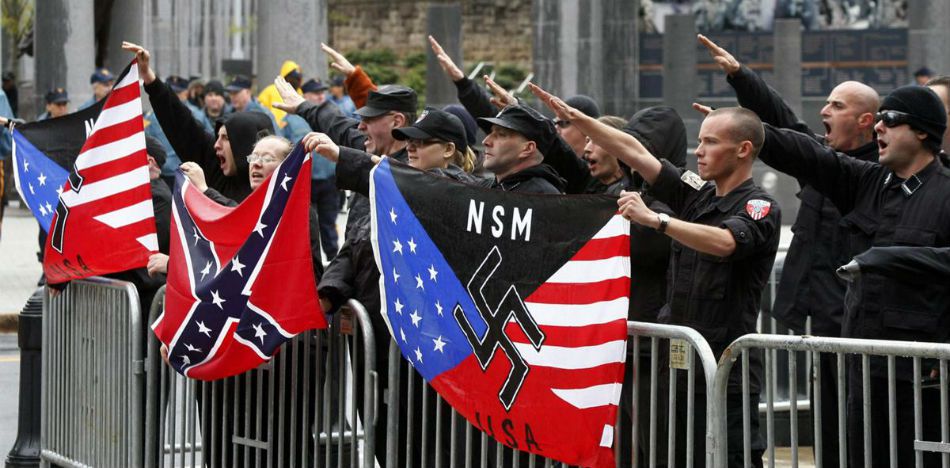
EspañolEveryone I Don’t Like is Hitler: A Child’s Guide to Online Political Discussion is a fictional book that went viral on social media during the US presidential election, but that dates back to earlier days.
The meme mocks those who demonize ideas that do not fall within the comfortable range of political correctness, without even questioning their nature, parroting the same old mantras.
Something similar happened in the 1970s, when anyone who did not share progressive views was, by default, a fascist.
- Read More: Trump Is the Only World Leader to Recognize Fidel Castro’s Failed, Violent Dictatorship
- Read More: Without Free Speech, Cuba Remains Trapped in Totalitarian Unanimity
Fascist remains the most common insult used by those who do not know what they are talking about, but need a prompt accusation.
Fascism is, according to Merriam-Webster Dictionary, a “political philosophy, movement, or regime […] that exalts nation and often race above the individual and that stands for a centralized autocratic government headed by a dictatorial leader, severe economic and social regimentation, and forcible suppression of opposition.”
Dictionary.com states that fascism is a “governmental system led by a dictator having complete power, forcibly suppressing opposition and criticism, regimenting all industry, commerce, etc., and emphasizing an aggressive nationalism and often racism.”
More than one Fidel Castro or Hugo Chávez fan should think twice before using such an adjective.
Comparisons between President-elect Donald Trump and Adolf Hitler abounded during the campaign, but Hillary Clinton was also the target of such attacks.
It seems, like the meme suggests, we have truly entered the era of “everything I do not like is Hitler.”
Neither Trump nor Clinton are Hitler, no matter how disappointing that may be to many. Neither is fascist, although both have some fascist traits: Trump’s nationalism and Clinton’s statism.
However, that is not enough. Closer to fascism are some Latin American politicians like the Castro brothers, Hugo Chávez, Cristina Fernández, and Nicolás Maduro.
Such is the Hitler paranoia that the United Kingdom has not hesitated to use anti-terrorist laws to declare a “neo-Nazi” party illegal.
In the words of Home Secretary Amber Rudd, “today I am taking action to proscribe the neo-Nazi group National Action. This will mean that being a member of, or inviting support for, this organisation will be a criminal offense.”
Rudd is right that National Action should be condemned. But turning illegal everything we find condemnable is a very dangerous path that can be counterproductive, even in the short term.
Curiously, these kind of measures are very similar to the ones Hitler took when he came to power.
On the contrary, true liberty advocates should not try to force others to live in hiding.
J.K. Rowling, author of the Harry Potter saga, exposed it brilliantly when someone proposed that Donald Trump be declared persona non grata in the United Kingdom.
Rowling said Trump had all her support to “be offensive and bigoted there.” Moreover, she noted that Trump’s freedom to be “offensive” is what “protects my freedom to call him a bigot.”
“If you seek the removal of freedoms from an opponent,” Rowling argued, “simply on the grounds that they have offended you, you have crossed a line to stand alongside tyrants who imprison, torture and kill on exactly the same justifications.”
Regulation of speech is almost as dangerous as censorship, and neither is desirable under any circumstance for neither camp.
This simple idea seems unthinkable to a lot of people. In fact, throughout the world and throughout history, almost nothing has been as feared as true liberty.
 Versión Español
Versión Español












